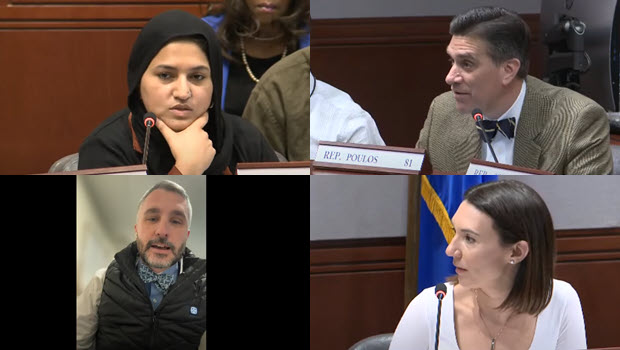In an important step forward for educators, the Education Committee met yesterday and advanced several key bills—including Senate Bill 1459, which aims to boost teacher salaries.
SB 1459 would establish a minimum teacher salary of three times the federal poverty level for a family of two—which is $63,450 in 2025—and provides state funding to increase pay for all teachers. The bill now heads to the Appropriations Committee.
“Thank you to those members of the Education Committee who voted this bill out of Committee today,” said CEA President Kate Dias. “We have a significant teacher shortage in the state and we must act now to address the issue before it gets even worse.”
She urged CEA members to watch for further action alerts from CEA and be prepared for further communication with lawmakers.
“This bill is now going to Appropriations, so we will again need to speak up and ensure legislators on that Committee know why it’s so important to raise teacher pay,” she said.
“I think this is a wonderful bill, it speaks to the value we put on education,” said State Rep. Patrick Biggins. “Increasing teacher value in our state is very important, and for that reason I’m going to vote yes.”
The Committee also forwarded to Appropriations SB 1513, An Act Concerning Aspiring Educators. That bill would provide a stipend to college students while they complete their student teaching. Currently college students in almost every other field receive pay for required internships, but aspiring educators do not.
Many CEA Aspiring Educators testified in support of the bill at a recent hearing.
“Let’s avoid giving students a reason to turn their back on teaching,” Quinnipiac master’s degree student Julia Lockery told legislators. “Often, students are forced away from the profession because they cannot afford to devote their time to an unpaid position. It is unfair for students who possess the calling and the passion for teaching to be unable to fulfill it due to finances.”
Speaking in support of SB 1513, Rep. Chris Poulos, a CEA member, recalled his own entry into the teaching profession after two years in the Peace Corps through the alternate route to certification program. He described how difficult it was to make ends meet while going through a 12-week program with no ability to work to support himself.
“We’re suffering from a major shortage of educators,” Poulos said. “We shouldn’t be starting the school year with vacancies and substitutes.”
Subscribe to the CEA Daily to stay up to date with the latest happenings at the legislature and to receive notifications of actions you can take to move these bills forward.







